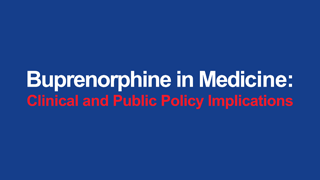Medication monitoring and drug testing ethics project
DOI:
https://doi.org/10.5055/jom.2015.0256Keywords:
drug testing ethics projectAbstract
In 2012, Duke University initiated a research project, funded by an unrestricted research grant from Millennium Laboratories, a drug testing company. The project focused on assessing the frequency and nature of questionable, unethical, and illegal business practices in the clinical drug testing industry and assessing the potential for establishing a business code of ethics. Laboratory leaders, clinicians, industry attorneys, ethicists, and consultants participated in the survey, were interviewed, and attended two face-to-face meetings to discuss a way forward.
The study demonstrated broad acknowledgment of variations in the legal and regulatory environment, resulting in inconsistent enforcement of industry practices. Study participants expressed agreement that overtly illegal practices sometimes exist, particularly when laboratory representatives and clinicians discuss reimbursement, extent of testing, and potential business incentives with medical practitioners. Most respondents reported directly observing probable violations involving marketing materials, contracts, or, in the case of some individuals, directly soliciting people with offers of clinical supplies and other “freebies.”
While many study respondents were skeptical that voluntary standards alone would eliminate questionable business practices, most viewed ethics codes and credentialing as an important first step that could potentially mitigate uneven enforcement, while improving quality of care and facilitating preferred payment options for credentialed parties. Many were willing to participate in future discussions and industry-wide initiatives to improve the environment.
References
Committee on Advancing Pain Research, Care, and Education, Board on Health Sciences Policy: Relieving Pain in America: A Blueprint for Transforming Prevention, Care, Education and Research. Washington, DC: The National Academies Press, 2011.
Swedlow A, Young B: Drug Testing Utilization and Cost Trends in California Workers' Compensation. Oakland, CA: California Workers Compensation Institute, May 2012.
Meier B, Marsh B: The rising cost of the opioid economy. New York Times. June 22, 2013.
Martin TW: More patients' pain killers come with strings attached-doctors demand urine samples to prove use, written promises not to reseal the drugs; a ‘trust-and-verify-situation’. Wall Street Journal. July 20, 2013.
Serres C: Drug tests of welfare recipients prove costly. Minneapolis Star Tribune. December 27, 2013.
Sehgal N, Manchikanti L, Smith S: Prescription opioid abuse in chronic pain: A review of opioid abuse predictors and strategies to curb opioid abuse. Pain Physician. 2012; 15(3S opioid special issue): ES77. DOI: https://doi.org/10.36076/ppj.2012/15/ES67
Price M, Norris DM: Health care fraud: Physicians as white collar criminals? J Am Acad Psychiatry Law. 2009; 37(3): 286-289.
Bolen J: Passing the test. Healthcare Professionals Network Live. January 14, 2011.
Published
How to Cite
Issue
Section
License
Copyright 2005-2025, Weston Medical Publishing, LLC and Journal of Opioid Management. All Rights Reserved.










